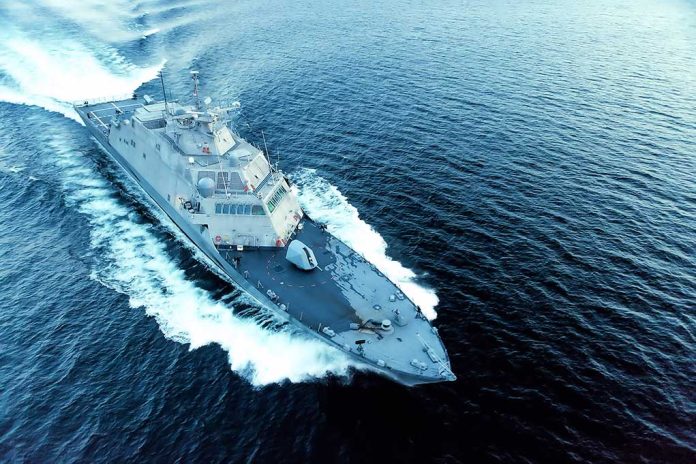
Russian spy sensors detected in British waters have sparked national security concerns as evidence mounts of a covert underwater espionage campaign threatening critical infrastructure.
Top Takeaways
- Multiple Russian spy sensors targeting UK’s nuclear-armed submarines have been discovered in British waters
- Britain is reportedly “behind the curve” in tracking Russia’s expanding deep-sea espionage operations
- Critical underwater infrastructure including data cables (carrying 90% of UK data) and energy pipelines (60% of gas) are vulnerable to sabotage
- Russian “greyzone warfare” includes unmanned submarines, sensing devices, and possibly using oligarchs’ superyachts for underwater reconnaissance
- The UK government is increasing defense spending and seeking private sector partnerships to enhance maritime security
Russian Underwater Spy Network Detected
British security forces have discovered Russian spy sensors in UK waters specifically designed to track Royal Navy nuclear submarines and monitor critical undersea infrastructure. The devices, found through mine hunting and underwater surveillance operations, are part of what former defense minister Tobias Ellwood describes as a “greyzone war” with Russia. The sensors are believed to be targeting Britain’s Vanguard submarines, which carry the nation’s nuclear deterrent, representing a direct challenge to national security.
Britain is “behind the curve” in tracking Russia’s deep-sea operations, an ex-minister has said. Submarine sensors represent just one aspect of Russia’s underwater espionage campaign. Reports indicate Russian autonomous submarines have been detected near deep-sea communications cables without visible support vessels, and strange devices have been found on the sea floor and washed up on British coastlines. Intelligence sources suggest Russian President Vladimir Putin’s regime has ordered a secret mission specifically targeting cables, pipelines, and other undersea assets.
Exclusive: Russian sensors attempting to spy on Britain's nuclear submarines have been found by the British military in UK waters
The discovery was deemed a threat to nation security and has never been made public – until now
— Harry Yorke (@HarryYorke1) April 5, 2025
Vulnerable Undersea Infrastructure
The UK’s maritime vulnerabilities are extensive, with approximately 90% of the nation’s data and 60% of its gas supply traveling through undersea cables and pipelines. This critical infrastructure remains largely unprotected against sabotage or espionage. Russia has allegedly established remote seabed platforms off the UK coast where mini-submarines can recharge while mapping undersea cable networks. Recent incidents in the Baltic Sea, where several submarine cables were damaged, have heightened concerns about Russia’s capabilities.
“There should be no doubt, there is a war raging in the Atlantic,” said one senior military source.
British officials are particularly concerned about Russia’s “shadow fleet” and unconventional tactics. Intelligence suggests that Russian oligarchs’ superyachts may be doubling as underwater reconnaissance platforms, launching probes to gather intelligence on Western naval movements and undersea infrastructure. The Ministry of Defence has acknowledged the need for enhanced vigilance but maintains that the UK’s continuous-at-sea nuclear deterrent remains undetected, having successfully maintained its patrols for 56 years.
Britain’s Defensive Response
The British government is taking steps to counter the Russian threat, commissioning the RFA Proteus, a specialized deep-sea surveillance vessel. However, critics argue this single ship is insufficient given the scale of the threat. Ellwood has called for “half a dozen of these vessels if not more” to adequately patrol British waters. The government is also seeking funding partnerships with technology and energy companies to protect underwater infrastructure through a project named Cabot.
The UK is increasing defense spending, with plans to raise it to 2.5% of GDP by 2027. Armed Forces Minister Luke Pollard has stated that the UK has been proactive in responding to Russian aggression and is considering various defensive options. Some military experts have suggested the deployment of sea mines, a measure not used since the Cold War, to protect critical infrastructure. The Ministry of Defence emphasizes its commitment to strengthening responses in coordination with NATO allies to ensure Russian ships and aircraft cannot operate in secrecy near the UK.






















